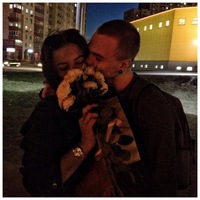
Напишите эссе на английском языке на тему ""Kindergarten in Russia/Детские сады в России"". Эссе
должно содержать не менее 10 предложений. 0
0
 0
0
Ответы на вопрос
 Внимание! Ответы на вопросы дают живые люди. Они могут содержать ошибочную информацию, заблуждения, а также ответы могут быть сгенерированы нейросетями. Будьте внимательны. Если вы уверены, что ответ неверный, нажмите кнопку "Пожаловаться" под ответом.
Внимание! Ответы на вопросы дают живые люди. Они могут содержать ошибочную информацию, заблуждения, а также ответы могут быть сгенерированы нейросетями. Будьте внимательны. Если вы уверены, что ответ неверный, нажмите кнопку "Пожаловаться" под ответом.

For a child, a kindergarten is a second home in which he lives, develops, learns the world through communication in a team. Kindergarten can be called another world, into which parents look when they bring their children, take part in the life of the group and the kindergarten, and attend matinees. This world has its own rules and regulations.
In a modern kindergarten, I would like to see convenient access and parking spaces, beautiful outdoor playgrounds for children, a swimming pool, a living area, various sections and circles, comfortable sleeping places, and educational toys. To make the conditions for children better, the playrooms are large and bright. And even now it is noticeable that the gardens are changing. They are no longer the same as they were before, the gaze is directed at the child, at his development, a lot of things the parent himself can learn for himself. After all, life is now so intense and does not stand still, which means that the kindergarten is developing, helping children to cope with everything that he has to overcome, becoming an adult.
Although it is not so important what a modern kindergarten looks like: a small house by the river in grandmother's village, a multi-storey one - high in the mountains, in the form of a ship or a fairytale tower. The main thing is that the children feel good there, that in the morning they hurry to the kindergarten, and in the evening they wait for their mother and excitedly tell her about their successes. And it is very important that there are real educators next to them!
 0
0
 0
0

Kindergarten in Russia
Kindergartens play a crucial role in the education and development of young children in Russia. They provide a nurturing and stimulating environment for children aged three to six years old. In Russia, kindergarten education is considered an integral part of a child's early years and is highly valued by parents and society.
One notable aspect of kindergartens in Russia is their emphasis on early childhood education. The curriculum focuses on the holistic development of children, encompassing not only academic skills but also social, emotional, and physical development. Children engage in various activities such as arts and crafts, music, physical education, and language development exercises.
Russian kindergartens often have spacious and well-equipped facilities to accommodate different learning experiences. They typically have separate classrooms for different activities, such as reading corners, art rooms, and play areas. Outdoor spaces are also utilized for physical activities and nature exploration, providing children with opportunities to develop their gross motor skills and appreciation for the environment.
Another important aspect of Russian kindergartens is the qualified and dedicated staff. Teachers in kindergartens are highly trained professionals who understand the unique needs of young children. They create a nurturing and supportive environment that fosters children's creativity, curiosity, and love for learning. Teachers also work closely with parents, providing regular updates on their child's progress and offering guidance on their development.
In addition to the educational aspect, kindergartens in Russia also focus on instilling values and promoting social skills. Children learn important social concepts such as sharing, cooperation, and respect for others. They engage in group activities that encourage teamwork and collaboration, preparing them for future interactions in school and society.
Furthermore, Russian kindergartens often celebrate cultural diversity. Children are exposed to various traditions, customs, and celebrations, fostering a sense of inclusivity and respect for different cultures. These experiences promote cultural awareness and help children develop a global perspective from an early age.
It is worth noting that the availability and quality of kindergartens can vary across different regions in Russia. While urban areas generally have a higher number of well-equipped kindergartens, rural areas may face challenges in terms of accessibility and resources. Efforts are being made to improve the infrastructure and expand the reach of quality early childhood education throughout the country.
In conclusion, kindergartens in Russia play a vital role in the development of young children. They provide a comprehensive educational experience that focuses on academic, social, emotional, and physical growth. With their dedicated teachers, well-equipped facilities, and emphasis on cultural diversity, Russian kindergartens strive to create a solid foundation for children's lifelong learning journey.
 0
0
 0
0
Топ вопросов за вчера в категории Английский язык
Последние заданные вопросы в категории Английский язык
-
Математика
-
Литература
-
Алгебра
-
Русский язык
-
Геометрия
-
Английский язык
-
Химия
-
Физика
-
Биология
-
Другие предметы
-
История
-
Обществознание
-
Окружающий мир
-
География
-
Українська мова
-
Информатика
-
Українська література
-
Қазақ тiлi
-
Экономика
-
Музыка
-
Право
-
Беларуская мова
-
Французский язык
-
Немецкий язык
-
МХК
-
ОБЖ
-
Психология
-
Физкультура и спорт
-
Астрономия
-
Кыргыз тили
-
Оʻzbek tili





















